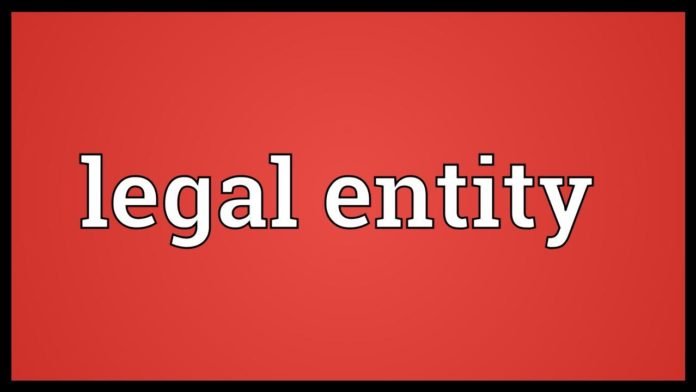In the business world, a legal entity is a term used to describe a structure that allows an organization to conduct its operations, enter into contracts, and own assets in its own name. A legal entity can be a corporation, a limited liability company, a partnership, or even a sole proprietorship. This article will delve into the concept of legal entities and explore how they operate.
What is a Legal Entity?
A legal entity is a structure that is recognized by law as having the legal capacity to enter into contracts, own property, and carry out its operations. Legal entities are separate from the people who own or run them, and they have their own legal personality. In other words, they can sue and be sued, enter into contracts, and own assets in their own right.
The concept of a legal entity is crucial in the business world because it allows organizations to operate and conduct business transactions with other entities, including suppliers, customers, and other businesses.
Types of Legal Entities
There are several types of legal entities, each with its own advantages and disadvantages. The most common types of legal entities include:
-
Sole Proprietorship
A sole proprietorship is a business owned by one person who is responsible for all aspects of the business. The owner is personally liable for all debts and obligations of the business. This means that if the business fails, the owner’s personal assets can be used to pay off the debts. A sole proprietorship is the simplest form of legal entity, and it does not require any formal registration or documentation.
-
Partnership
A partnership is a business owned by two or more people who share the profits and losses of the business. There are two types of partnerships: general partnerships and limited partnerships. In a general partnership, all partners are jointly and severally liable for the debts and obligations of the business. In a limited partnership, there are two types of partners: general partners who are personally liable for the debts and obligations of the business, and limited partners who are only liable for the amount of their investment in the business.
-
Limited Liability Company (LLC)
A limited liability company (LLC) is a hybrid form of legal entity that combines the liability protection of a corporation with the tax benefits of a partnership. LLCs are owned by one or more members who are not personally liable for the debts and obligations of the business. LLCs can be taxed as either a partnership or a corporation, depending on the number of members and how the business is organized.
-
Corporation
A corporation is a separate legal entity that is owned by shareholders. The shareholders elect a board of directors who are responsible for managing the corporation. The directors appoint officers who are responsible for the day-to-day operations of the business. Shareholders are not personally liable for the debts and obligations of the corporation, and their liability is limited to the amount of their investment in the corporation.
Advantages of Legal Entities
There are several advantages to using a legal entity to conduct business, including:
-
Liability Protection
One of the main advantages of using a legal entity is that it provides liability protection for the owners. This means that the owners are not personally liable for the debts and obligations of the business. If the business fails, the creditors can only go after the assets of the business, not the personal assets of the owners.
-
Tax Benefits
Legal entities can also provide tax benefits to the owners. For example, corporations can deduct certain expenses, such as employee salaries and benefits, from their taxable income. LLCs can be taxed as a partnership, which means that the income is taxed at the personal income tax rate of the members, which is often lower than the corporate tax rate.
What is Ease of Transferability?
Ease of transferability refers to how easy it is to transfer ownership or assets from one entity or individual to another. In a business context, ease of transferability can refer to the ability of a business owner to sell their business, transfer ownership to a family member or partner, or bring in new investors. It can also refer to the ability of a business to transfer assets such as real estate or intellectual property.
Importance of Ease of Transferability in Business
Ease of transferability is essential for businesses for several reasons. First, it allows business owners to plan for the future and exit their business when they are ready. For example, a business owner may want to retire or pursue other interests, and ease of transferability allows them to do so while ensuring that their business continues to operate.
Second, ease of transferability can make a business more attractive to potential investors or buyers. If a business has a complicated ownership structure or assets that are difficult to transfer, potential investors or buyers may be hesitant to get involved. On the other hand, if a business has a straightforward ownership structure and easily transferable assets, it may be more appealing to investors or buyers.
Finally, ease of transferability can help businesses to remain competitive. If a business is unable to transfer ownership or assets easily, it may be at a disadvantage compared to its competitors. For example, if a business is unable to bring in new investors or sell its assets quickly, it may struggle to keep up with competitors who are able to do so.
Factors That Affect Ease of Transferability
Several factors can affect the ease of transferability of a business or asset. These include:
-
Ownership Structure
The ownership structure of a business can have a significant impact on ease of transferability. For example, a sole proprietorship may be easy to transfer because the owner has complete control over the business and can sell it to another individual or entity quickly. On the other hand, a corporation may be more difficult to transfer because ownership is divided among shareholders, and there may be restrictions on the sale of shares.
-
Legal and Tax Considerations
Legal and tax considerations can also affect ease of transferability. For example, there may be tax implications associated with the sale of certain assets, such as real estate or intellectual property. There may also be legal restrictions on the transfer of certain assets, such as securities or restricted stock.
-
Business Operations
The nature of a business’s operations can also impact ease of transferability. For example, if a business is heavily dependent on the skills or reputation of the owner, it may be more difficult to transfer ownership because potential buyers may be hesitant to get involved without the owner’s continued involvement.
-
Asset Type
Finally, the type of asset being transferred can also affect ease of transferability. For example, real estate may be easier to transfer than intellectual property because it is a tangible asset with a clear value. Intellectual property may be more difficult to transfer because its value can be subjective and may be affected by legal considerations such as patents or trademarks.








